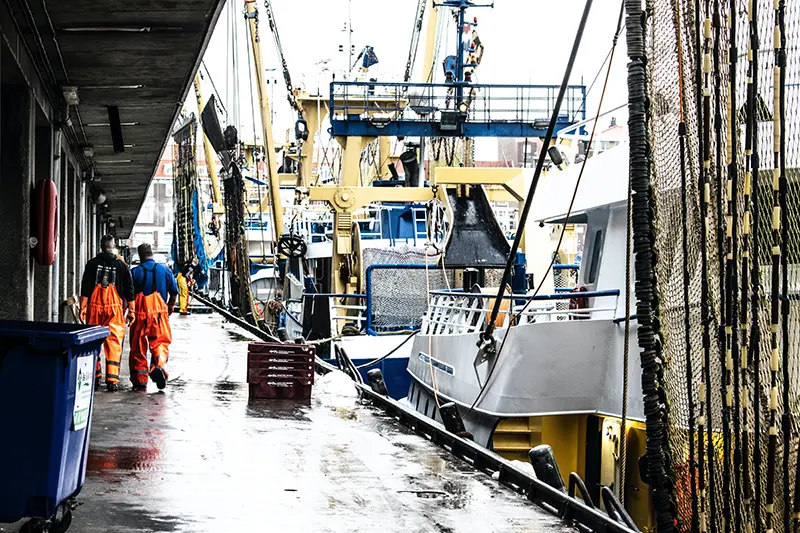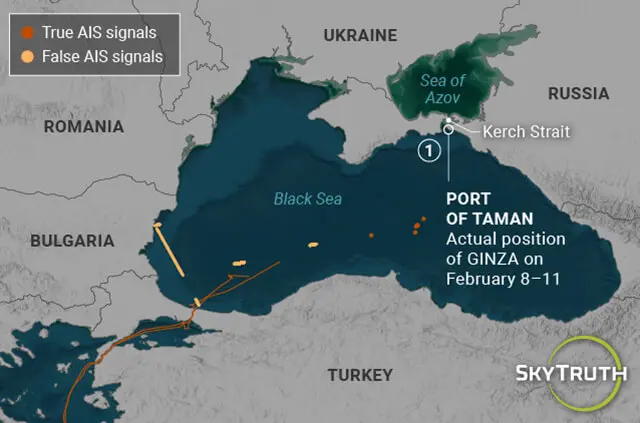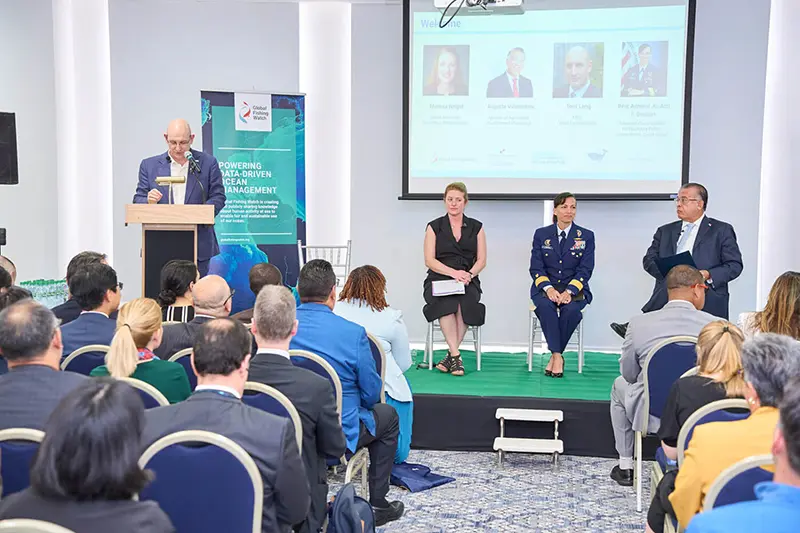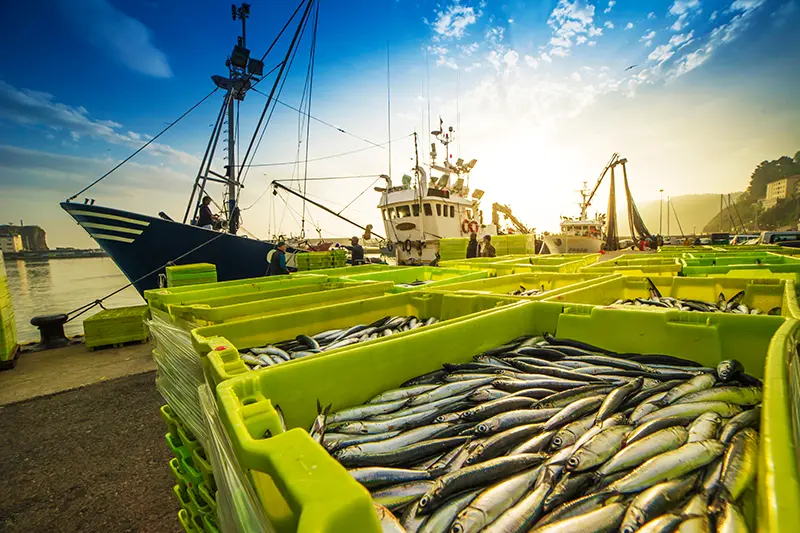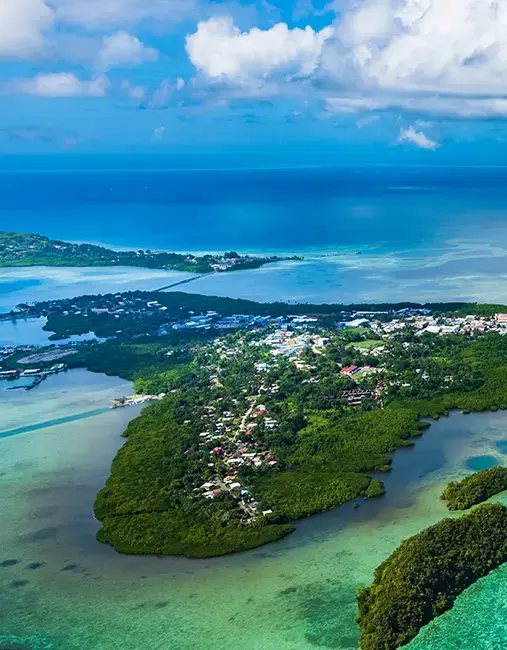2023
Annual Report
Message from the CEO
With each passing year, Global Fishing Watch demonstrates an ever-increasing role in addressing various threats facing the ocean. Whether it’s through groundbreaking research, work alongside governments, international bodies and other NGOs, or our growing voice in ocean governance, our goal is to deliver impact.
In 2023, the expanding recognition of our potential was evidenced by a U.S.$60 million commitment we secured through The Audacious Project as well as significant new funding from the Paul M. Angell Family Foundation and renewed partnerships with Oceankind and Bloomberg Philanthropies. Support like this forms the foundation for revolutionizing ocean management and powering our ambitious goal to reveal all human activity at sea. Partnerships, from funders to the scientific community and civil society, play a central role in our efforts to encourage governments to adopt greater transparency and address ocean threats.
Global Fishing Watch occupies a unique standing in the ocean advocacy space, harnessing innovative technology and machine learning to generate insights for experts and policymakers about what is happening on the ocean. The global community needs this now more than ever—to protect the high seas, to curtail harmful fisheries subsidies, and to meet our target of safeguarding at least 30 percent of the ocean by 2030. Achieving such commitments will be virtually impossible without the type of advanced ocean monitoring technology and expertise that Global Fishing Watch provides.
In 2024, we will continue advocating for greater transparency of human activity at sea and of the data held with institutions that set and enforce maritime policy. By making information available and accessible to everyone it affects, we can help drive better policies, accountability, enforcement and inclusivity in decision-making.
None of this work will be easy. Like all ambitions worth achieving, it will require persistence, strategic vision, and the collective efforts of our team. But it is precisely that team—the diverse and globally distributed staff—which is made stronger by the vital partnerships we have, that will ensure our success. We are excited about the possibilities before us and eager to continue advancing our goals, for the health of the ocean and all who rely on it for their livelihoods and wellbeing.
We look forward to seeing what the rest of 2024 has to bring.

Best wishes,

Tony Long
CEO, Global Fishing Watch
Our Impact
Global Fishing Watch is working around the world to harness transparency toward fair and effective ocean governance. We openly share our data and tools, working closely with governments, academia, nonprofits and the science community to generate insights that can help inform decision-making and drive action on the water.
Last year we achieved many milestones—from new research and partnerships in the Pacific to an ambitious new project to map all human activity at sea.
We are proud to be one of the ten big, bold solutions selected in 2023 by The Audacious Project to address the world’s most urgent challenges. Thanks to the generous support of a passionate group of donors, we are leveraging open data and innovative technology to transform the way we manage our ocean. The U.S. $60 million investment is enabling us to embark on a new journey—the open ocean project. Harnessing the power of satellite data and machine learning, we will create a digital ocean to light up all industrial activity at sea, making the invisible visible for the first time.
Along with Duke University and the Stockholm Resilience Centre, we published new research in Science that revealed the extent to which vessel identities have been changed. Using more than 40 public registries, and analyzing about 35,000 vessels, we were able to identify hotspots of potential unauthorized fishing activity and disclose patterns of reflagging. This study follows a 2022 paper published in Science Advances in which Global Fishing Watch researchers helped reveal hotspots where GPS transponders on commercial fishing vessels were being intentionally switched off. Read more about the shifting identities of vessels in our Q&A with the authors.
We teamed up with Birdlife International to take a closer look at the tuna longline industry and their night setting practices—a proven bycatch reduction technique. Using GPS data, we were able to identify when most longline vessels deploy their hooks. The unfortunate truth: Most vessels set their lines just before sunrise and proceed into the early morning hours. This is when albatross are actively searching for food and most vulnerable to being caught by a commercial fishing hook. Our research, which was published in Biological Conservation, is now being used to fuel discussions about the effectiveness of bycatch mitigation strategies and the potential use of our technology in monitoring compliance.
In collaboration with research partners, we published a study in Science Advances that highlights the growing footprint of global squid fishing—and its unregulated nature. Over the four-year study period, our researchers determined that squid fishing effort increased by 68 percent, equating to 4.4 million fishing hours. These light-luring squid boats were predominantly operating in unregulated waters, making both sustainability and resource equity challenging. But with this new information comes new opportunities to improve management.
“This study demonstrates the critical importance of comprehensive data sharing agreements between regional bodies for improving understanding of the movements of these vessels and quantifying their impacts on squid stocks.”
-Nate Miller, head of applied research

After welcoming newcomers, C4ADS and Skylight, the Joint Analytical Cell (JAC) had more exciting news to share—multimillion dollar funding commitments from Canada and the United Kingdom. Announcements were made at the 78th Session of the U.N. General Assembly, positioning the JAC to continue its support in the fight against illegal fishing by informing monitoring, control and surveillance and building capacity in priority regions.
The emergence of a “shadow fleet,” reported by the New York Times in May—and in light of price caps that were imposed on Russian crude oil—presented us with an opportunity to take a closer look at the Black Sea. Using satellite radar imagery and tracking data, we were able to correlate vessel positions to detect and classify false positional data, ultimately allowing us to identify four tankers broadcasting false positions. How did we know? Strike one: The tankers failed to broadcast locations on satellite imagery. Strike two: The positions received by terrestrial antennas were outside the range of their purported locations. Strike three: The tankers demonstrated repeated movement patterns that were not characteristic of genuine vessel movement.
Incidents like these are not isolated. And whatever the motivation may be behind the falsification, the reality is a new set of challenges for regulators attempting to monitor and track cargo vessels. Dive into the analysis produced with our partner, SkyTruth.
In lead up to the 8th Our Ocean Conference, we co-hosted a full day workshop with the Panamanian Aquatic Resources Authority to highlight the value of transparency in bolstering ocean governance. The event brought together voices from different geographies and backgrounds to address challenges in data sharing, barriers in political will, and opportunities for capacity development. Despite a range of transparency initiatives and varying degrees of progress across national governments, the message from thought leaders was clear: transparency of data is essential—not just when it comes to informing and implementing policies but also in creating a global system of accountability.
Developed in partnership with TMT, Vessel Viewer made its global debut in October, equipping port inspectors, fisheries enforcement officials, insurers and seafood industry stakeholders with aggregated information to inform their decision making. Freely available to anyone with an internet connection, Vessel Viewer consolidates data from public sources to build vessel profiles and create insights that can enhance fisheries controls, strengthen risk assessments and bolster the due-diligence process. Learn more about Vessel Viewer.
"Having detailed vessel insights allows for deeper supplier engagement and better-informed discussions between seafood companies and their suppliers."
-Lindsay Ceron, senior project director, FishWise
Announced at the 78th Session of the U.N. General Assembly, Palau became the most recent country in the Pacific to enter a partnership with us to enhance transparency in the fisheries sector. Joining a growing number of progressive countries, this remote island nation has committed to sharing its vessel tracking data on our map. A long time leader in ocean conservation and fisheries management, Palau will harness our tools and data to examine vessel behaviors and inform enforcement approaches, strengthening its current governance initiatives.
“By making our vessel tracking data publicly available on the Global Fishing Watch map, we hope to increase transparency and accountability of fishing activities in our waters. This can drive sustainability of our resources and contribute to reducing illegal activities in our ocean.”
-Honorable Steven Victor, Minister of Agriculture, Fisheries, and the Environment, Palau.
We’re continually building on our achievements, capitalizing opportunities presented through our groundbreaking research, partnerships with governments and innovative technology. Learn more about the impact we’ve already made.
Global Fishing Watch in Action
Our team was busy in 2023 and without a doubt 2024 will be the same. Not all of our work makes headlines—a lot of it happens behind the scenes and through smaller, more informal collaborations. Sometimes that looks like an in-person training to develop capacity on our tools in a certain country or region, and other times it might mean sitting in front of multiple screens providing enforcement officials with analysis to inform their patrol efforts. It’s all a part of our work, and we’re proud to share some of these highlights with you.
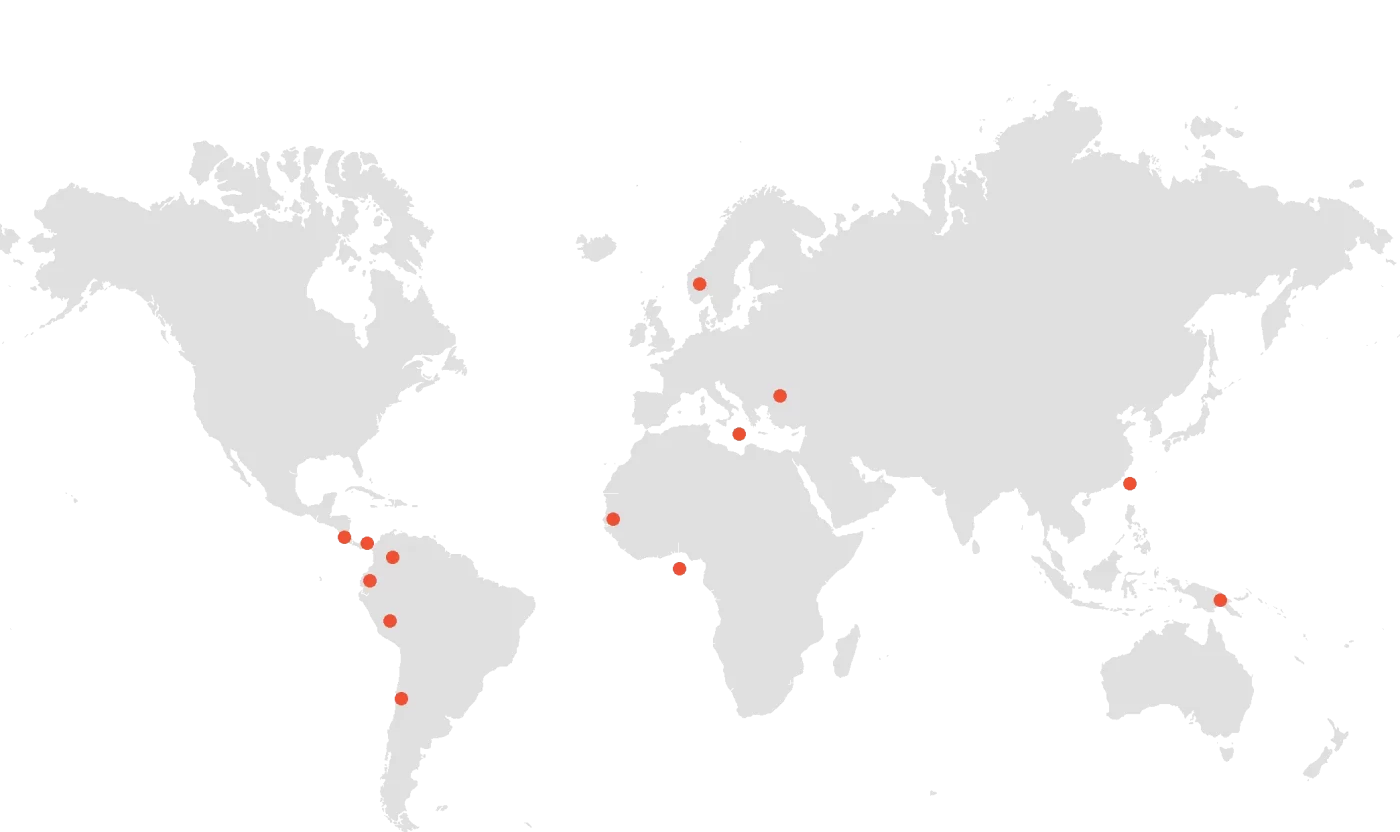
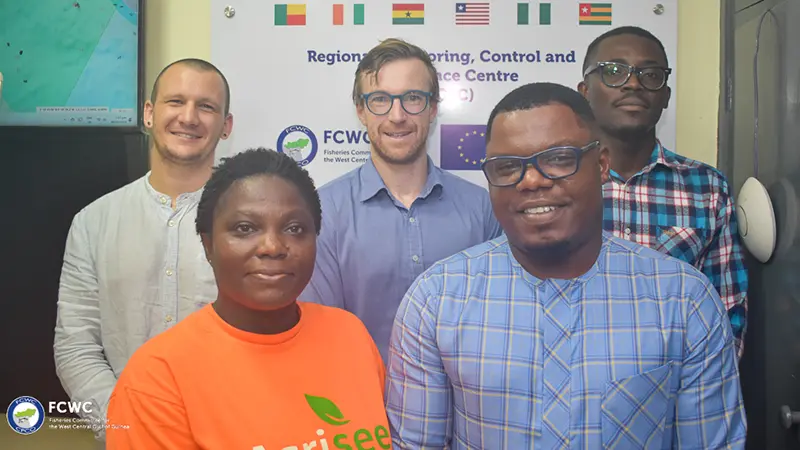
Joint Analytical Cell Supports Patrols off of West Africa
Harnessing technology, analysis and fisheries intelligence, the Joint Analytical Cell (JAC) helped target enforcement efforts to combat illegal fishing in the Gulf of Guinea. Supporting Africa Nemo 23.04—a week-long annual patrol led by the French Navy—the JAC provided analytical support that informed decision-making in the planning and execution phases of the operation.
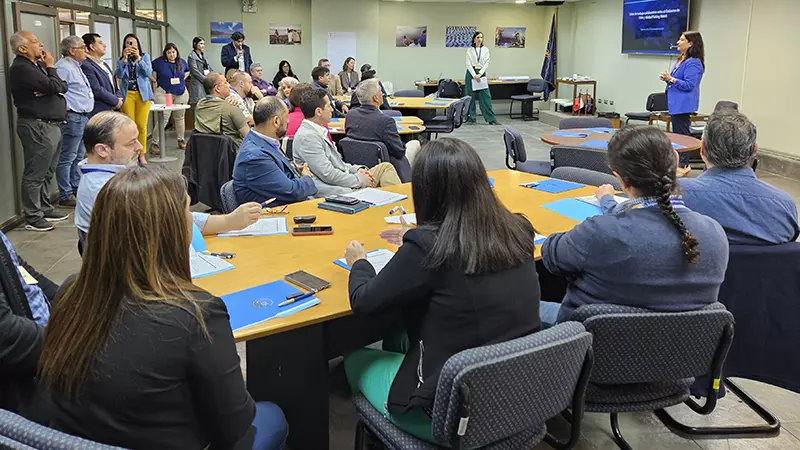
Priority Setting with SERNAPESCA
In November, our Latin America regional team met with the National Fisheries and Aquaculture Service of Chile, along with other government agencies, to discuss and share ideas about strengthening marine governance. With topics like illegal fishing front and center, the collaborative workshop allowed the team to outline a set of shared priorities to bolster the monitoring, control and surveillance of Chilean waters and identify areas to support the country’s international voice on transparency.
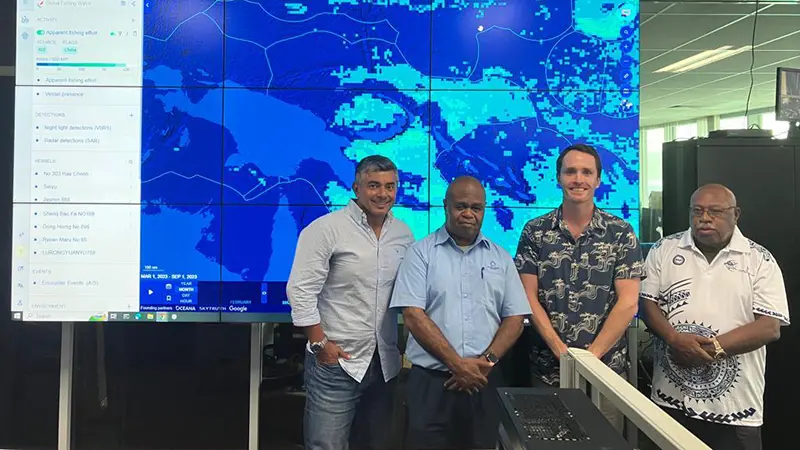
Illuminating the Pacific
Papua New Guinea became the first Pacific country to publicly share its vessel monitoring system data on our map. Our analyst, Tim White spent a week in the capital city, Port Moresby, attending the Pacific Tuna Forum, where he moderated a session on fisheries technology and presented our work in the Pacific. During his visit, Tim provided support to the National Fisheries Authority and the Fishing Industry Association, training their staff on our tools to help support at-sea patrols and bolster management.
We’re on The Gram!
In lead up to World Oceans Day, we launched our Instagram account, which quickly moved up to the second biggest driver of traffic to our website. By highlighting our achievements, research, technology products and field work through engaging visuals, we’re now able to share our story and engage audiences in a whole new way.
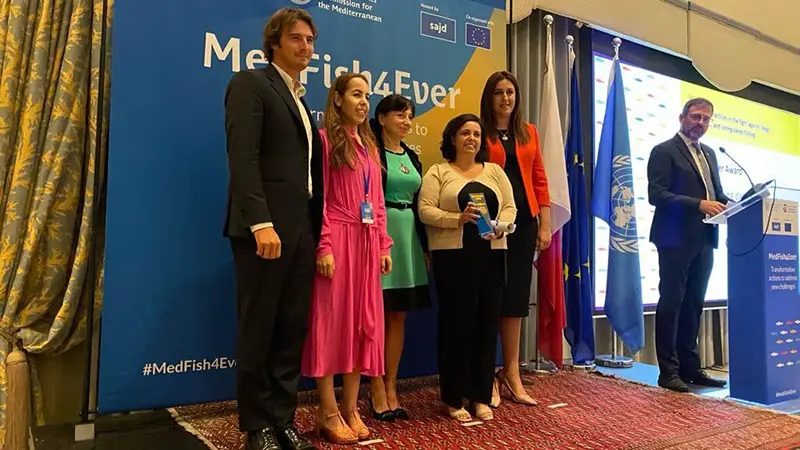
Innovative Practices to Combat Illegal Fishing
Using machine learning techniques, our team has been analyzing remote sensing data to shine a light on fishing activity in the Mediterranean. In October, we were honored to receive the prestigious MedFish4Ever award from the General Fisheries Commission for the Mediterranean in recognition of innovative practices to fight illegal fishing.
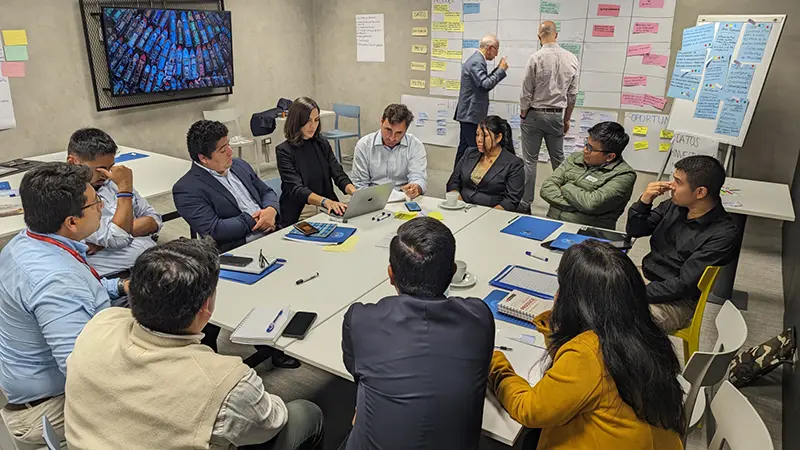
A Deep Dive with Peru’s Ministry of Production
Our team in Latin America closed the year with a joint workshop alongside Peru’s Ministry of Production. Together, we took a deep dive into some of the biggest challenges facing the country when it comes to fisheries—from mechanisms that can help reduce illegal fishing to the challenges surrounding transparency in the small-scale fishing industry. After three days of working sessions, we have a shared understanding of how data and technology can help strengthen Peru’s fisheries policies and foster more accountability across the fishing sector.
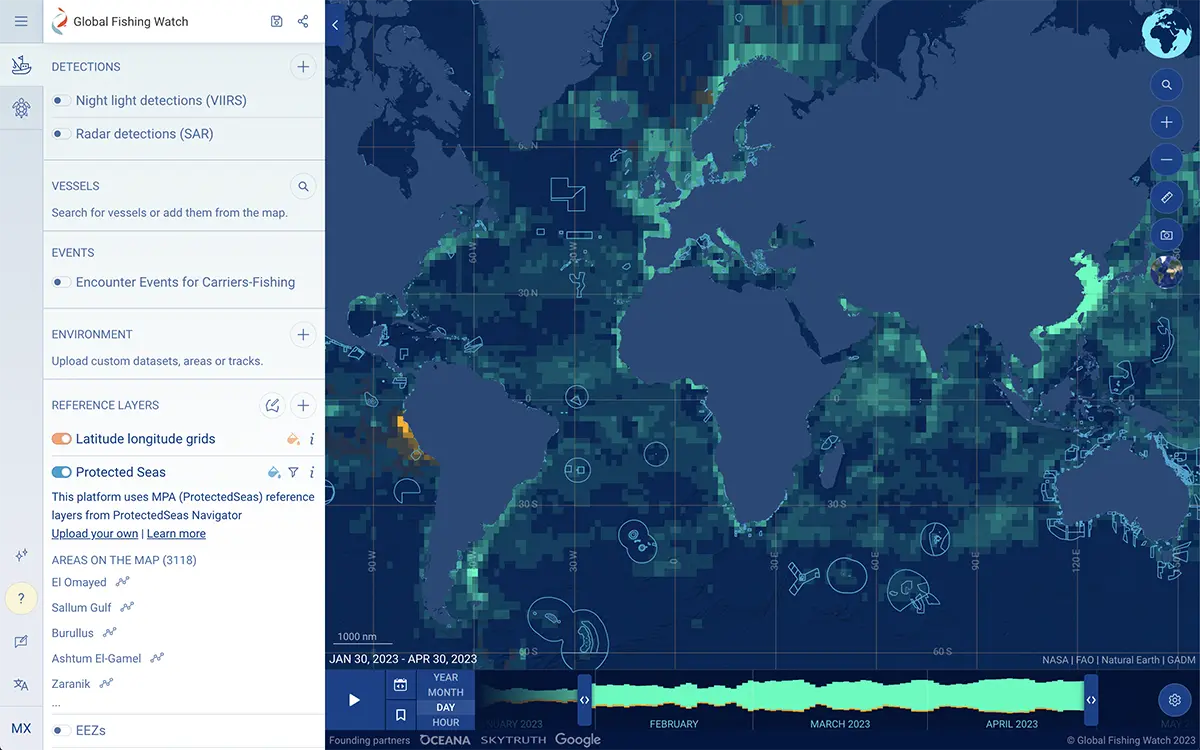
Platform Updates
We are continually updating our map and monitoring tools with new features and layers of information to ensure they’re serving the needs of those who use them.
We unveiled a new innovative vessel history tool called Vessel Viewer, which consolidates data from a range of public sources to provide decision makers with the ability to identify and cross-check information about a given vessel and its activity.
We introduced the integration of dynamic reports, which allow users to focus on an area of interest and rapidly analyze fishing and vessel activity during a specific time range.
And we added a ProtectedSeas Navigator reference layer, allowing users to learn more about managed areas and the regulations that govern them.
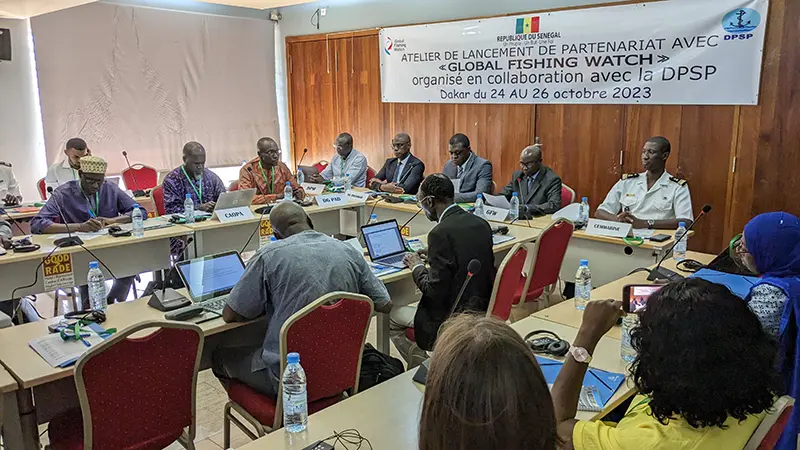
Collaborative Efforts to Protect West Africa's Waters
Three days of lively discussion in Dakar, Senegal helped assess the challenges and priorities that authorities face in monitoring its waters. Working in collaboration with the Directorate of Fisheries Protection and Surveillance, we developed a roadmap to improve fisheries transparency, reduce illegal fishing and destructive fishing practices, develop capacity and strengthen scientific research.
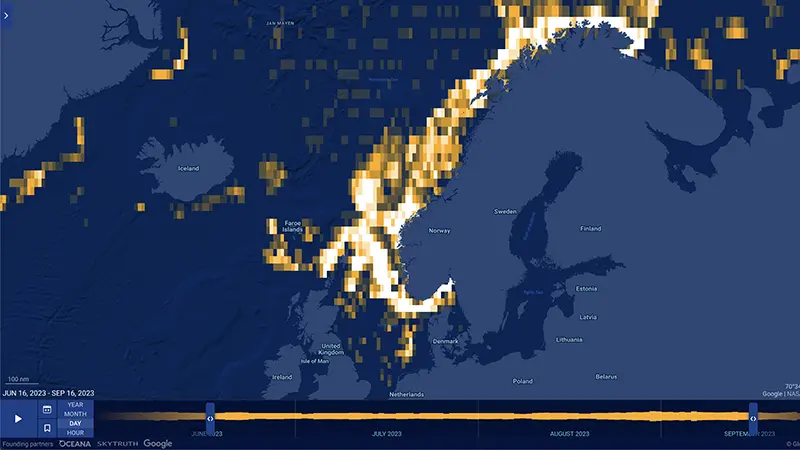
450 Norwegian-flagged Vessels
In 2022, Norway made the landmark decision to share its vessel tracking data with Global Fishing Watch, becoming the first country in Europe to demonstrate that level of transparency. And since March, tracking data for more than 450 Norwegian-flagged vessels have been illuminated on our fishing map. Just a few months later at the 35th Session of the Committee on Fisheries, we collaborated with Norway on an official intervention to propose the first globally implemented vessel tracking agreement.
Protecting the Eastern Tropical Pacific Marine Corridor
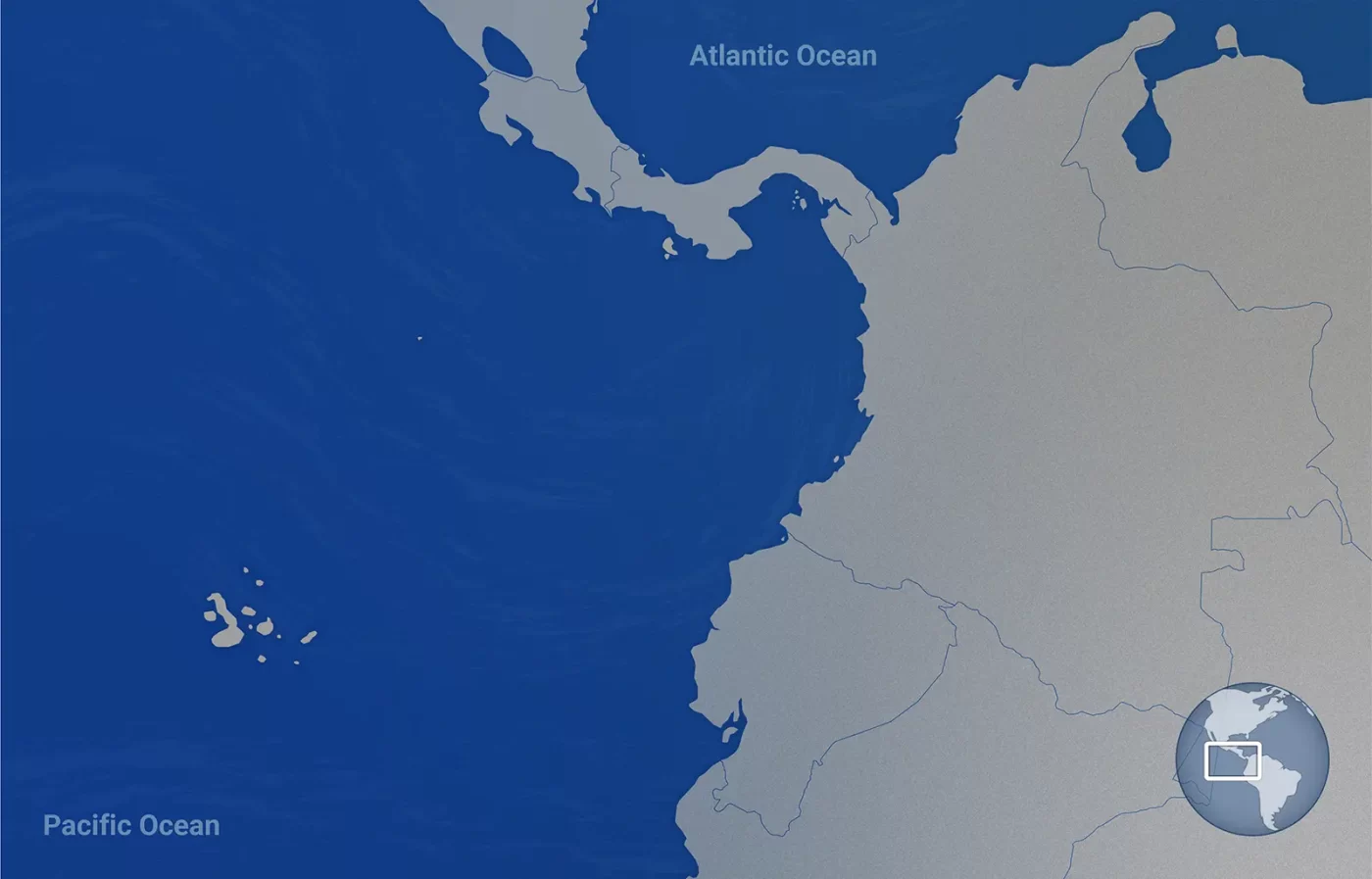
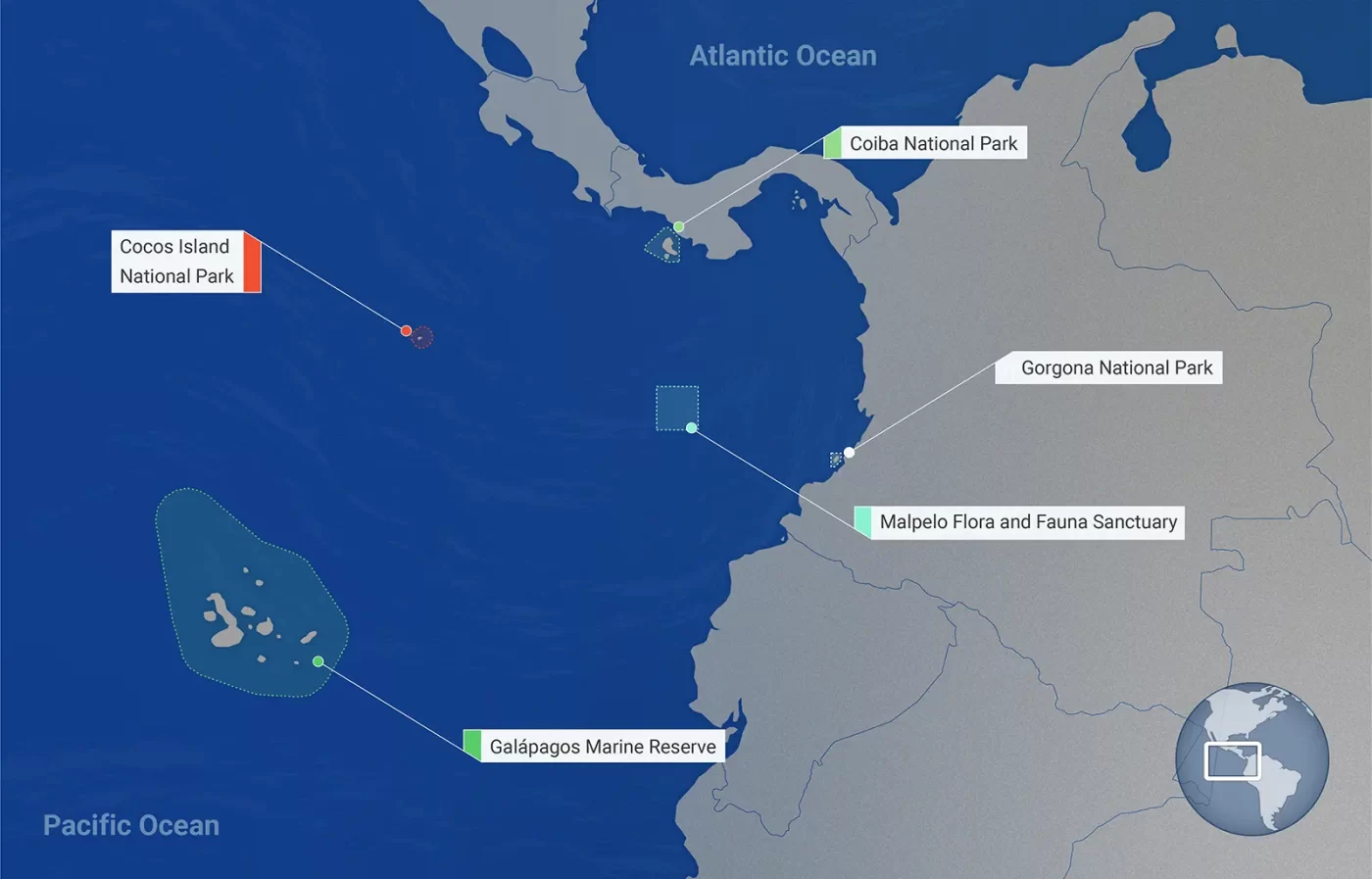
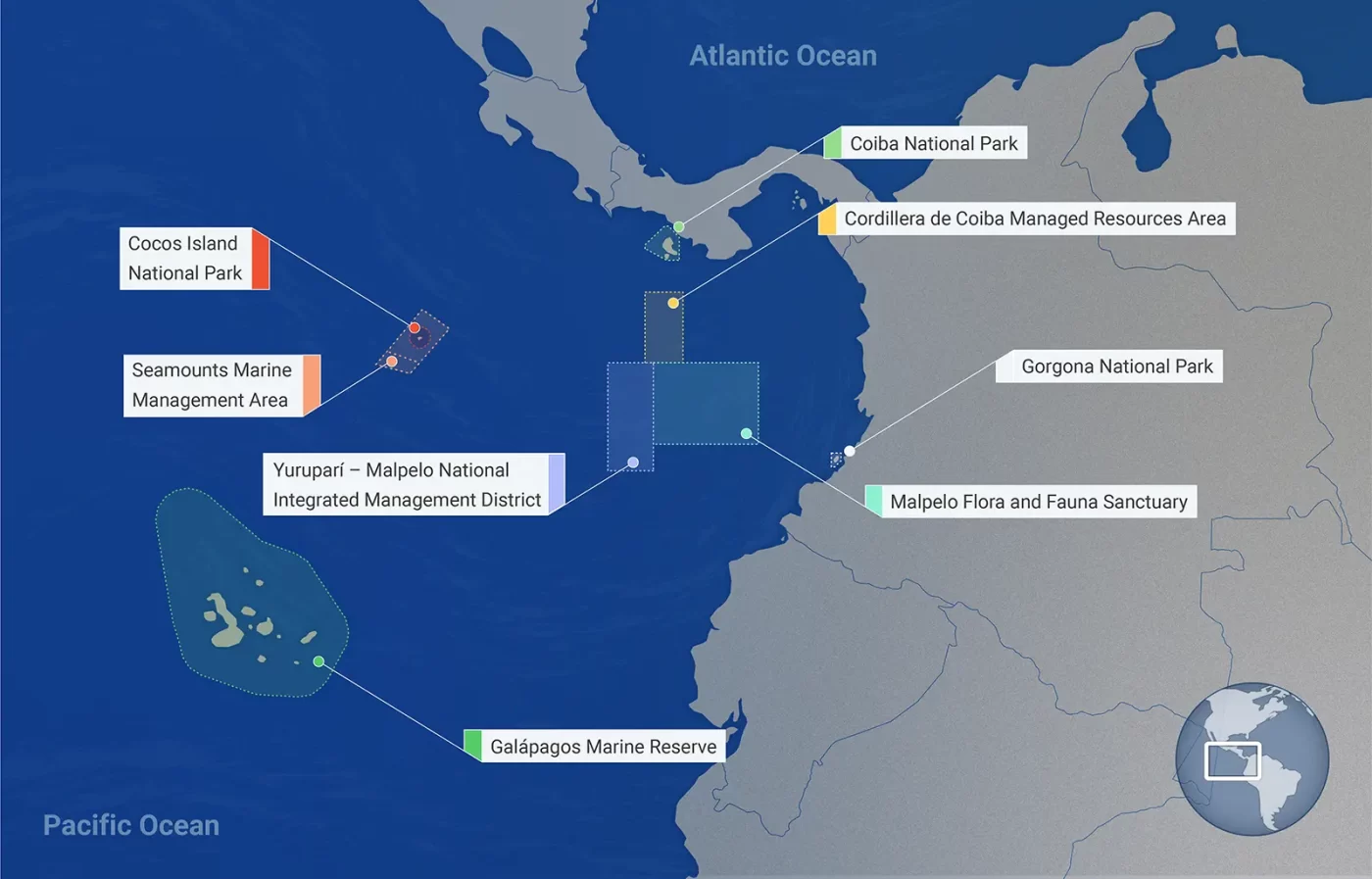
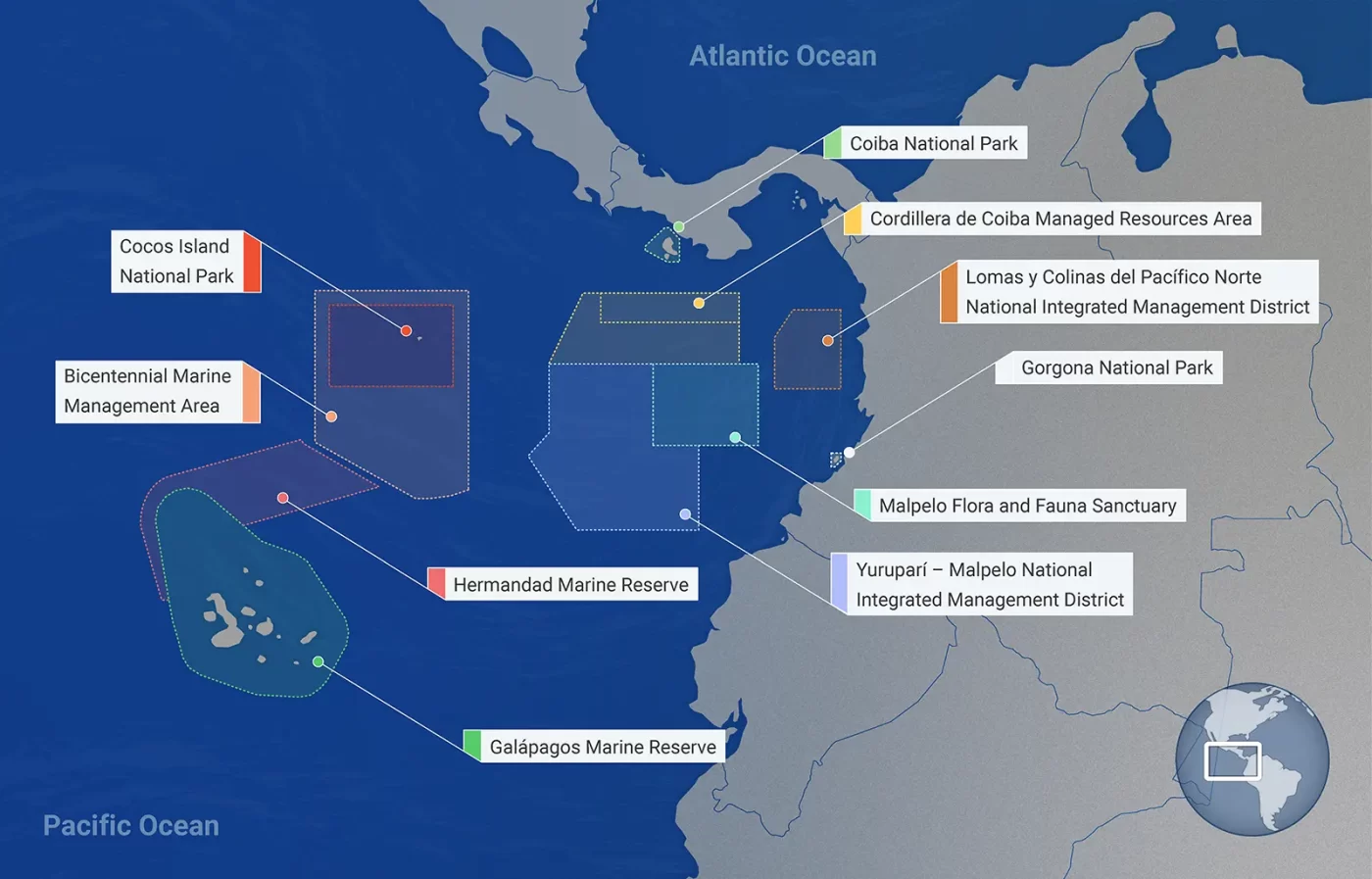
Global Fishing Watch is supporting stewardship of the Eastern Tropical Pacific Marine Corridor, commonly referred to as CMAR—a cluster of marine protected areas that span more than 772,000 square miles between the waters of Colombia, Costa Rica, Ecuador and Panama. Using the marine manager portal, we’re helping CMAR partners make data-driven management decisions and find tailored solutions to the area’s unique challenges.
We spent time getting to know one another in 2023—without a computer screen between us. An all-staff meeting in Barcelona allowed us to come together in person and spend valuable time with our teams. We sat down with a number of our experts to discuss their various disciplines spanning policy, analysis and science—and find out a little more about what motivates them to work in this unique space.
Meet some of our team and learn what drives them to make a difference in the world. Their stories and passion are the building blocks for our success.
Our staff is dedicated—there’s no question about that. But what would they be doing if they weren’t at Global Fishing Watch helping protect the ocean?
Our people make the mission possible. With nearly 90 staff in 27 countries, we are truly global, facilitating a holistic and open-minded approach to our work.
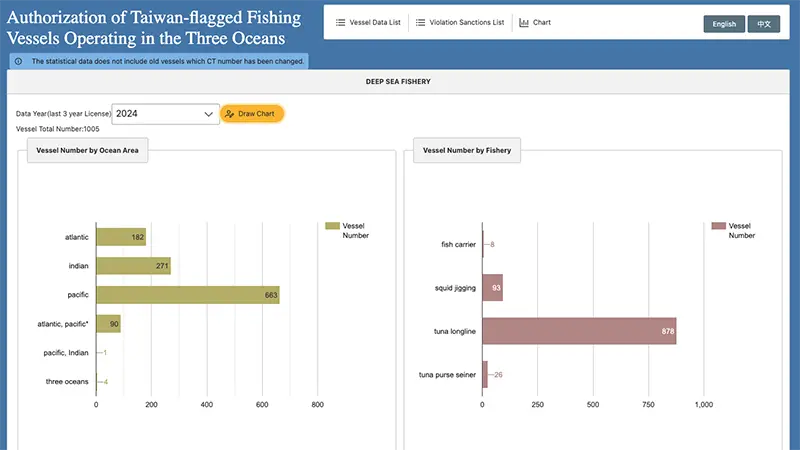
Taiwan’s Transparency Initiative
In 2023, the Taiwan Fisheries Agency launched a website that publicly discloses authorizations and statistical data of offshore fishing vessels for the past three years. The website, which was advocated for by the Environment & Animal Society of Taiwan, allows users to search for information related to violation sanctions, fishing license numbers, permit duration, and details about vessel owners and operators. Taiwan’s initiative marks a significant step toward increased transparency and accessibility of this data, enabling Global Fishing Watch and other stakeholders to work with more actionable and reliable information.
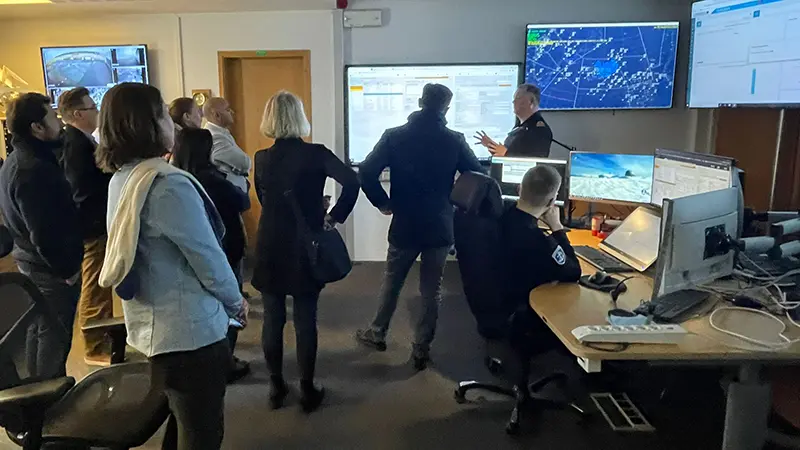
Creating Knowledge and Developing Capacity
In 2023, we conducted over 50 trainings and demonstrations of Global Fishing Watch tools, engaging over 1,000 participants. These sessions, ranging from online webinars to week-long, in-person events, are designed to educate those in the government sector on the various applications of our tools to meet their national objectives. From the Directorate of Fisheries in Iceland to the CAPFISH summer academy hosted by the World Maritime University, we’re committed to developing the technical capacity necessary for authorities, organizations and individuals to use our data and tools in support of ocean governance.
Global Fishing Watch by the Numbers
Financials
Global Fishing Watch finished 2023 in good financial health. Thanks to the generosity of our donors, we are demonstrating the expanding impact of our work and remain well-positioned to steward the organization’s growth responsibly.
Our 2030 strategy includes a greater focus on improving internal systems to facilitate and enable delivery of our mission. Our leadership team is committed to strengthening financial structures and enhancing management of staff to attract, retain and motivate world class talent. And to ensure we are a sustainable and enduring organization, we have plans in place to increase our fundraising investment to drive future income growth.
Income and expenses
Our overall income in 2023 was U.S.$75.1 million with a total spend of U.S.$14.4 million, an increase of U.S.$65.1 million and U.S.$1.5 million respectively on the previous year.
The significant growth in total income was due to a five-year U.S.$60 million commitment through The Audacious Project to map all human activity at sea and scale our work to strengthen ocean governance.
Approximately 85 cents of every dollar spent in 2023 was in support of Global Fishing Watch’s programs. The remainder was used on operational and administrative functions and additional fundraising initiatives.
Our expenditure includes U.S.$4.3 million directly on our transparency program; U.S.$2.8 million directly on research and innovation; U.S.$4 million on engineering and product development, U.S.$1.2 million on communications, and U.S.$2.1 million on support costs, including operations and fundraising.
Reserves
Our total reserves in 2023 was U.S.$1.6 million. Under the direction of our board, we have developed a plan to build our reserve to U.S.$12 million by 2030, which accounts for approximately 21 weeks of budgeted funds expenditure. By doing this, we ensure an appropriate level of accessible funds to mitigate against identified financial risks while also allowing for timely and strategic use of our funds.
Donors
We are extremely grateful to all of our funders for their continued generosity across all areas of our work, and we are committed to ensuring our income is used efficiently, effectively and responsibly.
Global Fishing Watch is especially thankful for the support of our major funders. Their contributions ensure that we are not only progressing as an organization but also helping expand and support the broader ecosystem of partners working together to advance our shared goals.
In 2023, we were thrilled to receive a U.S.$60 million commitment via The Audacious Project, a funding initiative catalyzing social impact on a grand scale. This investment marks a transformative moment in our evolution, offering an opportunity to massively increase our impact for the ocean.
We also welcomed a new five-year partnership with the Paul M. Angell Family Foundation to support our international policy program and a one-year grant from the Patrick J. McGovern Foundation to enhance our forced labor risk model and data ethics work.
The Minderoo Foundation renewed its support for our work to detect risks of illegal, unreported and unregulated fishing, and the Didier and Martine Primat Foundation continued their vital support for our work to advance fisheries management in the Mediterranean.
Through our partnership with the Ocean Risk and Resilience Action Alliance, we renewed funding from the Gordon and Betty Moore Foundation and the U.K. Department of Environment, Food and Rural Affairs to continue development and application of our Vessel Viewer tool and data to inform risk assessments.
We are especially grateful to donors that provided Global Fishing Watch with flexible funding. In 2023, we renewed generous support from Oceankind, as well as funding from The David and Lucile Packard Foundation, Flora Family Foundation, Marisla Foundation and Re:wild. We invite philanthropists, foundations and other donors to join us in growing this critical, flexible source of support to continue to develop the tools we need to manage a healthy, productive and resilient ocean for generations to come.
Donor listing (as of December 2023)
Adessium Foundation
The Audacious Project funders include the Acton Family Giving, Ballmer Group, Becht Foundation, Oak Foundation, Laura and Gary Lauder and Family, Lyda Hill Philanthropies, MacKenzie Scott, Sea Grape Foundation and Valhalla Foundation, among others.
The Bacon Foundation
Bloomberg Philanthropies
The David and Lucile Packard Foundation
Defense Innovation Unit
The Didier and Martine Primat Foundation
Flora Family Foundation
Flotilla Foundation
Gordon and Betty Moore Foundation
Impact Philanthropy Group/IMCS Network
Korea Maritime Institute
Marisla Foundation
Minderoo Foundation
National Philanthropic Trust
National Geographic Pristine Seas
Nationale Postcode Loterij
Ocean Risk and Resilience Action Alliance
Oceans 5
Patrick J. McGovern Foundation
The Pew Charitable Trusts
Re:Wild
Stanford Center for Ocean Solutions
Trygg Mat Tracking
U.K. government’s Conflict, Stability and Security Fund
Walmart Foundation
World Economic Forum
Financial Statements
Global Fishing Watch, Inc.’s 2023 audited financial statements and 2023 Form 990 will be uploaded here in September.
Previous financial statements can be found on the financials page of our main website.
Global Fishing Watch, Inc. is a tax-exempt organization under Section 501(c)(3) of the U.S. Internal Revenue Code. Contributions made to Global Fishing Watch may be tax deductible.
Governance
Global Fishing Watch’s board of directors is responsible for guiding our mission, values and strategy, and for ensuring the financial integrity and effective resource management of the organization. Our board, comprising 11 unpaid members, appoints and supervises the chief executive officer, and approves major commitments based on advice from the senior executive team.
Our commitment to accountability and transparency
At Global Fishing Watch, accountability and transparency are fundamental principles of our work and the thread that runs through our 2030 strategy. They are essential for building and maintaining the trust of our stakeholders, ensuring donor confidence and supporting our people to achieve our objectives.
Living our values
Global Fishing Watch is committed to promoting diversity, equity and inclusion (DEI) within the organization and throughout the wider ocean community. We are building a diverse team where there is equitable opportunity for growth, inclusive ways of working, and where every team member can bring their whole selves to work.
Our DEI committee is in its second year of operation, collaborating with senior leadership to drive key initiatives.
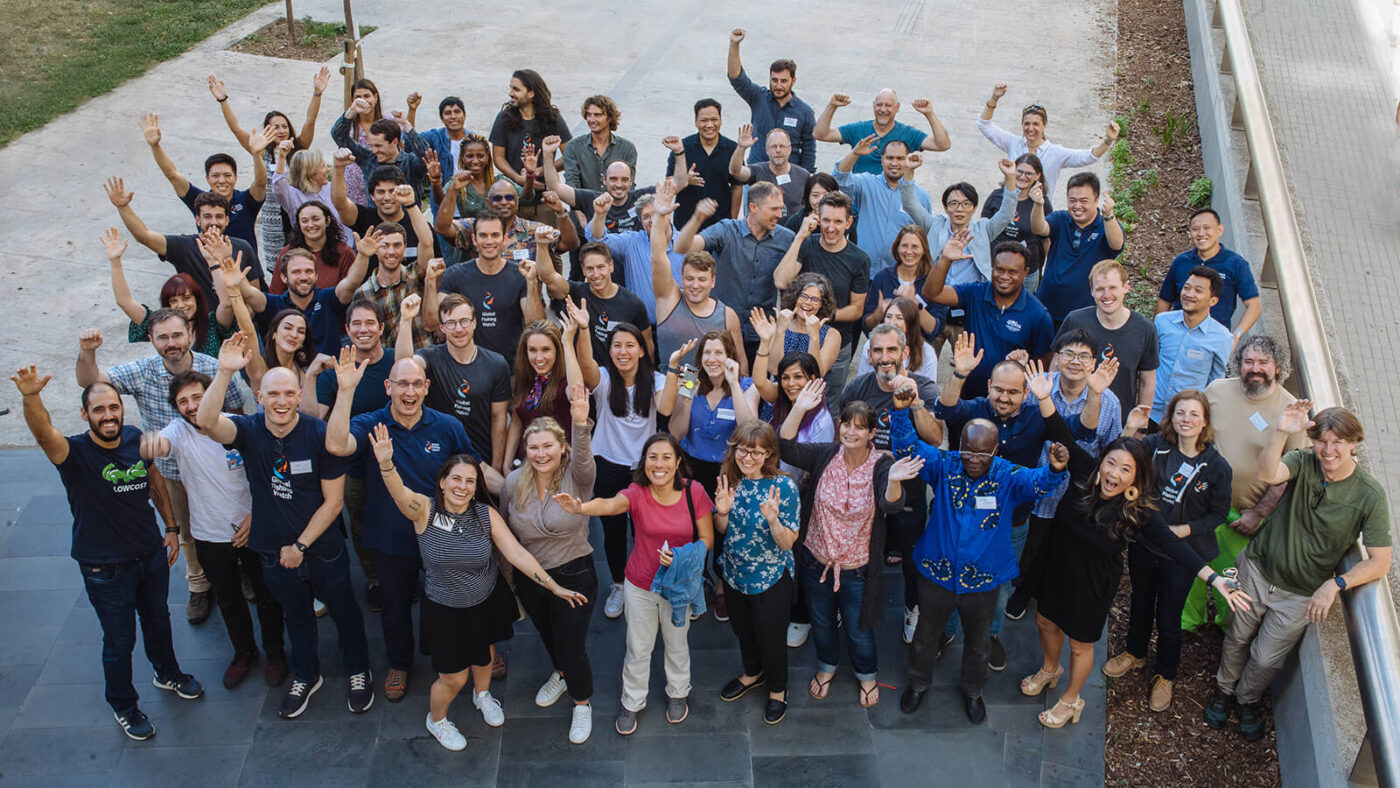
Digging into data ethics
At Global Fishing Watch, we gather vast amounts of data on human activity at sea, spanning large-scale industrial operations to individual artisanal fishing vessels. Using artificial intelligence (AI), we create automated models to extract insights from this data, which we openly share via our platform.
We are aware that inherent biases exist in the data we receive and our modeling processes can perpetuate or inadvertently introduce new bias. As an open platform, our data can be used in unforeseen ways, which may result in unintended outcomes. Therefore, ensuring its ethical application is a priority.
In 2024, we will begin formalizing a review process that will establish protocols to identify and limit the publication of data in cases of high ethical risks. Engaging external consultants, we aim to create a robust system that enhances the transparency of biases in our data so that those using it will have a more-informed approach.
Annual highlights
We reviewed hiring practices to identify how to attract more diverse candidates, and we carried out a staff training to mitigate risk of biases in the recruitment process.
We conducted training to help staff navigate cross-cultural interactions and foster productive relationships across diverse cultures, languages and time zones.
Our data ethics committee was formally established, comprising 16 volunteer staff members from eight different countries.
We provided allyship training to equip staff with tools to actively foster an inclusive workplace.
Our DEI committee, made up of 11 volunteer staff, established a diverse panel pledge to promote more inclusive panels at public events.
